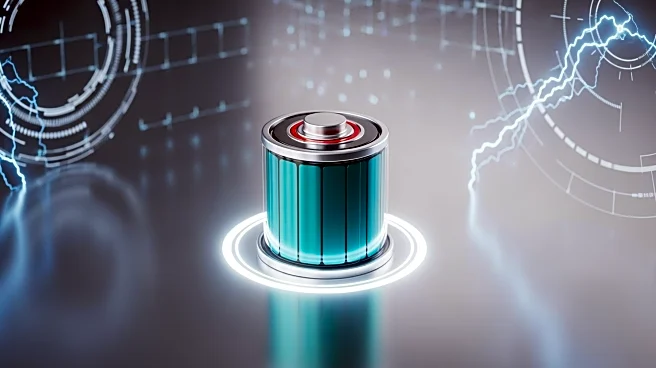What's Happening?
Epsilon Advanced Materials, an Indian energy storage firm, is preparing to establish a graphite anode factory in North Carolina, aiming to supply enough material for 1 million electric vehicles (EVs) made in the USA annually. Despite the recent expiration
of the $7,500 federal EV tax credit, Epsilon is moving forward with its plans, anticipating full production capacity by 2030. The company has secured necessary permits and plans to start operations in 2027, initially targeting a 50% capacity to supply 500,000 EVs. Epsilon has partnered with Phillips 66 to supply green and calcined needle coke, essential for manufacturing synthetic graphite anodes. This move aligns with efforts to build a competitive and resilient supply chain for clean energy technologies.
Why It's Important?
The establishment of Epsilon's factory is significant for the U.S. EV market, which is experiencing fluctuations due to changes in federal policy. The factory will contribute to the domestic supply chain, reducing reliance on foreign materials, particularly from China. This development is crucial as the U.S. aims to strengthen its clean energy infrastructure and reduce carbon footprints. The partnership with Phillips 66 highlights the importance of integrating traditional energy sectors with emerging clean technologies. As the public EV charging network expands, consumer confidence in EVs is expected to grow, potentially stabilizing the market despite the loss of federal tax incentives.
What's Next?
Epsilon's factory is set to begin operations in 2027, with full capacity expected by 2030. The company anticipates that federal energy policies may evolve to support the EV market further. The ongoing development of silicon-based anodes, which offer higher energy storage than graphite, could revolutionize the industry. Companies like Sila Nanomaterials and OneD Battery Sciences are advancing silicon anode technology, which may lead to more affordable and efficient EV batteries. As the U.S. continues to focus on reducing supply chain vulnerabilities, domestic production of EV battery components will be crucial.
Beyond the Headlines
The shift towards domestic production of EV battery components reflects broader trends in U.S. energy policy and economic strategy. By reducing dependency on foreign materials, the U.S. can enhance its energy security and foster innovation in clean technology. The collaboration between traditional energy companies and new tech firms underscores the potential for cross-sector partnerships to drive sustainable development. As silicon anode technology advances, the industry may see significant improvements in battery performance and cost-effectiveness, further accelerating the transition to electric vehicles.















